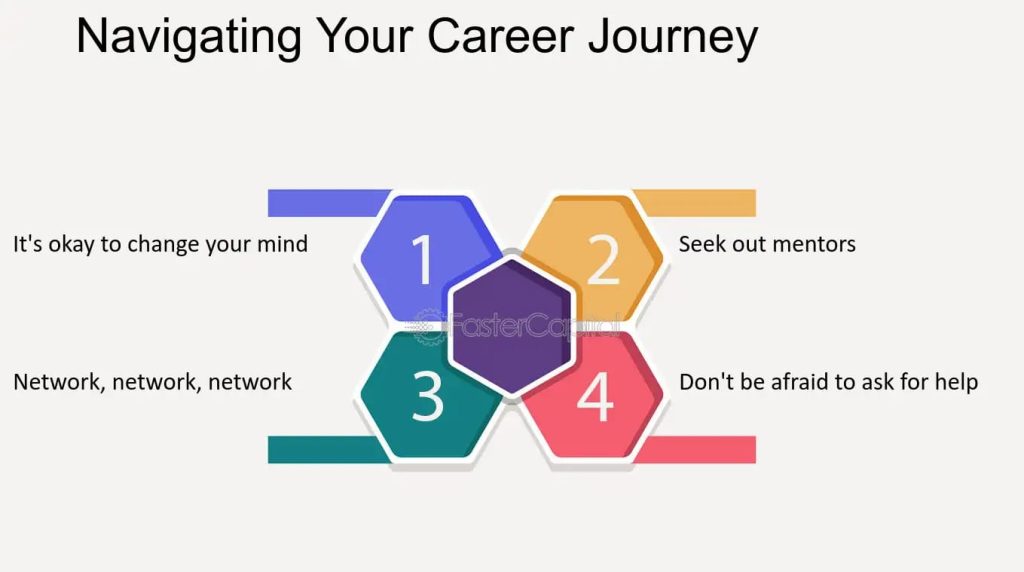The corporate world is a complex and dynamic ecosystem. Navigating through it requires strategic planning, adaptability, and continuous growth. Whether you’re an aspiring professional or a seasoned executive, understanding how to chart a clear roadmap to success can make a profound difference. This guide explores the key steps, principles, and strategies essential for achieving sustainable growth in your corporate journey.

Understanding the Corporate Landscape
The corporate world is shaped by industries, organizations, and evolving trends. Before setting your course, it’s crucial to:
Identify the Terrain:
Understand the industry you are in or wish to enter. Research its trends, challenges, and growth opportunities. Stay updated on market dynamics, technological advancements, and consumer behavior.
Set Clear Goals:
Define your career aspirations. Are you aiming for leadership roles, technical expertise, or entrepreneurial ventures? Specific, measurable, attainable, relevant, and time-bound (SMART) goals provide clarity and direction.
Assess Your Current Position:
Conduct a personal SWOT analysis (Strengths, Weaknesses, Opportunities, Threats) to understand where you stand. This self-assessment helps identify areas for improvement and leverage your strengths.
Building Foundational Skills
Skills are the bedrock of professional success. Some foundational skills critical to growth include:
Technical Expertise:
Master the technical skills relevant to your field. Stay updated with certifications, training, and practical experiences that add value.
Soft Skills:
Communication: Convey ideas effectively through clear and concise messaging.
Collaboration: Work seamlessly in teams and build relationships.
Adaptability: Thrive in dynamic environments and embrace change.
Leadership Abilities:
Even at entry levels, developing leadership qualities such as problem-solving, decision-making, and influencing others sets you apart.

Networking and Building Relationships
Success in the corporate world often hinges on relationships. Networking is not just about who you know but also about who knows you.
Internal Networking:
Engage with colleagues, managers, and leaders within your organization. Attend meetings, participate in team-building activities, and seek mentorship opportunities.
External Networking:
Join industry associations, attend conferences, and leverage professional platforms like LinkedIn. Connect with peers, thought leaders, and potential collaborators.
Mentorship:
Seek mentors who can provide guidance, share insights, and help you navigate challenges. Conversely, mentor others to give back and strengthen your network.
Embracing Continuous Learning
The corporate landscape is ever-evolving. Staying relevant requires a commitment to lifelong learning.
Formal Education:
Pursue higher education, certifications, or specialized courses to enhance your qualifications.
Self-Learning:
Stay curious and proactive. Read books, attend webinars, and follow industry experts to gain knowledge.
On-the-Job Learning:
Seek challenging assignments and volunteer for cross-functional projects. Practical experience fosters both skill and confidence.

Climbing the Corporate Ladder
Advancing in your career involves deliberate actions and consistent performance.
Deliver Results:
Excellence in your current role is the foundation of growth. Consistently exceed expectations and demonstrate value.
Seek Opportunities:
Look for roles or projects that align with your goals and offer growth potential. Be open to lateral moves if they expand your skill set.
Leverage Feedback:
Regularly seek feedback from peers and supervisors. Constructive criticism helps identify areas for improvement and demonstrates your commitment to growth.
Take Calculated Risks:
Growth often requires stepping out of your comfort zone. Whether it’s accepting a new role, relocating, or starting a new project, be willing to embrace challenges.
Navigating Challenges and Setbacks
The corporate journey is rarely linear. Obstacles are part of the process, and resilience is key.
Embrace Failure:
View failures as learning experiences. Analyze what went wrong, extract lessons, and apply them to future endeavors.
Manage Stress:
Maintain a work-life balance and prioritize mental health. Practices like mindfulness, exercise, and setting boundaries can help mitigate stress.
Conflict Resolution:
Address conflicts professionally and constructively. Developing emotional intelligence and active listening skills can de-escalate tensions.

Leveraging Technology
Technology is transforming the corporate landscape. Integrating it into your growth strategy is no longer optional.
Digital Literacy:
Familiarize yourself with tools and platforms that enhance productivity, communication, and data analysis.
Automation and AI:
Understand how automation and artificial intelligence impact your industry. Learn how to leverage these technologies to streamline processes and innovate.
Personal Branding:
Use digital platforms to build your professional brand. Share insights, achievements, and thought leadership content to establish credibility.
Navigating your corporate journey is a multifaceted process that requires clarity, resilience, and adaptability. By understanding the landscape, building skills, nurturing relationships, and embracing continuous learning, you can create a roadmap to growth that leads to sustained success.
Remember, the journey is as important as the destination. Embrace every challenge as an opportunity, and stay committed to your personal and professional development.
https://nimblefoundation.org/
https://www.facebook.com/nimblefoundation1
https://www.linkedin.com/in/satish-kakri-17224417/
https://nimblefoundation.org/our-clients.html
Thanks for reading.